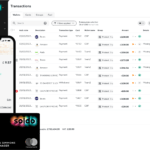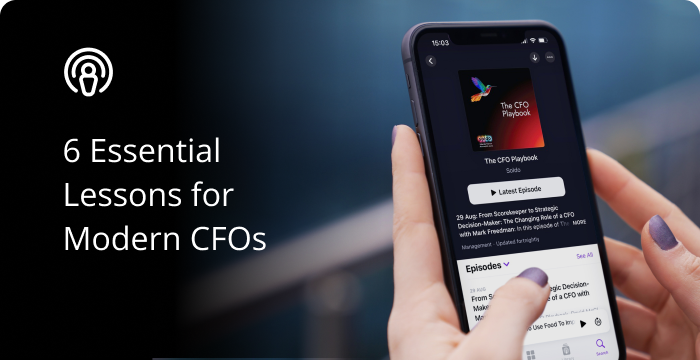Operational efficiency: Pushing through and beyond an economic downturn
“Money doesn’t disappear, it just changes hands,” as the adage in economics goes. The opportunities are still out there – but your business must be resilient to seize them.
It’s a difficult economic picture. But this is precisely the time your business should be priming itself to strike.
How to improve operational efficiency
The tried and true way to strengthen a business in a downturn is through operational efficiency savings. Simplistically, some people may view these as just ‘cuts’. But ‘cuts’ don’t actually capture the nuances and skill involved in cost saving.
Blind cutting will likely have a counterproductive impact on your company. Efficiency savings should strengthen a business, not diminish it. So let’s look at some examples of operational efficiency savings.
Renegotiate terms with suppliers
While ‘renegotiation’ could imply a bruising or gruelling reestablishment of terms, it can also be a mutually beneficial exercise. Indeed, it may mean temporarily prioritising certain suppliers at your own expense.
In a recent webinar with Soldo and the Generation CFO, M&S Food’s head of finance Sandeep Dasgupta identified cost pressure as a particular worry. This cost pressure is largely driven by supply chain disruption.
So to keep the supply chain moving, M&S has enacted joint business plans with suppliers (especially smaller suppliers). “We may need to support them in the interim while they are struggling – but then we work together to drive a long-term upside for both parties”.
Adapt to consumer habits
The thing about recessions is that we’ve been here before. They happen from time to time, although this particular recession has been hastened by a series of external factors. Namely COVID and the War in Ukraine.
Looking at previous recessions, it’s possible to sketch out a likely trajectory for this one. An International Monetary Fund (IMF) analysis of 122 recessions in 21 developed countries since 1960 found “that the typical recession lasted about a year and resulted in a dip in GDP of roughly 2%”.
The IMF analysis also found that “consumption trends rebound fairly quickly when the recession ends, though at different rates in different sectors”.
You sort of know what to expect. And that a consumer rebound is likely. The short to medium term will require some adaptation to consumer needs, however.
One notable trend is what the Harvard Business Review (HBR) calls “discretionary thrift”. Some people have to be thrifty through necessity – but a growing stratum of more affluent consumers are economising, too.
The HBR study notes that, “Our research among more affluent consumers has revealed mounting dissatisfaction with excessive consumption … They’re recycling more, buying used goods, and imbuing their children with traditional values.”
Monitoring consumer sentiment and behaviour is vital. Otherwise you can end up in a situation like furniture manufacturer and retailer Made.com. It bought excess stock in anticipation of a consumer spending boom. But instead, customers reined in spending and left Made severely over-leveraged.
Spend management
During times of growth and economic prosperity, it’s easy to overlook things like expenses. A little here and a little there is more acceptable when things are going well.
A recession brings leaky T&E into sharp relief, however. Suddenly, every penny counts and employee habits might take a while to catch up.
For finance leaders, it’s a balancing act. It’s time to reassert a firm grip on expenses – but without shattering fragile worker morale. Employees, naturally, don’t want to feel like they’re being monitored or watched.
And yet, you’ve got a job to do. It’s a delicate dance. Fortunately, solutions for travel and expenses have progressed a lot in recent years. There exists now a viable alternative to workers paying out of pocket, all while providing you with added control of company finances.
This control is more important than ever. As Clear Channel’s head of audit Daniel Mensah points out, “As people are under more economic pressure, the potential for fraud is higher”. That is a sad reality – but it is a reality.
A spend management solution uses prepaid expenses cards. All of it is controlled through a mobile app. Purchases are pre-cleared by your finance team and logged by the worker in the app with a copy (or picture) of the receipt.
This expense is then seamlessly reconciled in your accounts. It’s not only more resistant to fraud, but it’s also a time-saver for you and the business.
Getting through a recession
This recession will pass. Although this one has unique causes and characteristics, it remains recognisable for what it is.
You need to get beyond the mindset of ‘holding on’. There are things you can do now – strategically and technologically – to not just survive, but thrive when the upturn comes. Operational efficiency gives you room to think and act.
The finance team and the finance leader are now more important than ever. Not just to the business. Also to the workers who rely on the company for their livelihoods. Transformation and fluctuation are facts of life. These highs and lows aren’t solely destructive. They are also an opportunity to begin anew.
Visit our blog for more articles like this one or subscribe to get them direct to your inbox. Find the right Soldo plan for your business here.







